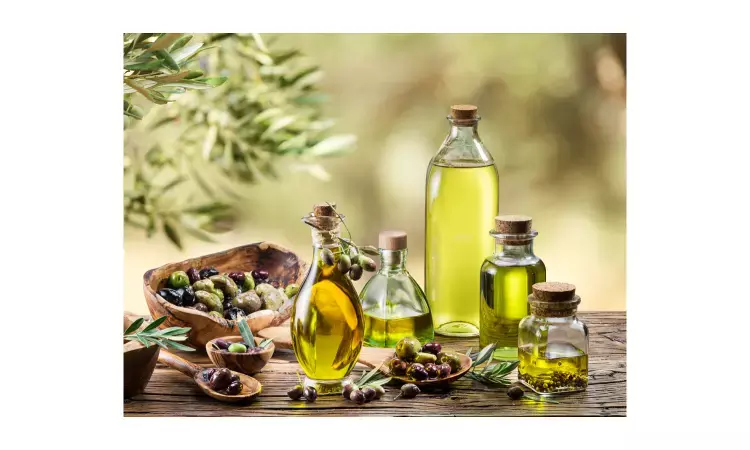- Home
- Medical news & Guidelines
- Anesthesiology
- Cardiology and CTVS
- Critical Care
- Dentistry
- Dermatology
- Diabetes and Endocrinology
- ENT
- Gastroenterology
- Medicine
- Nephrology
- Neurology
- Obstretics-Gynaecology
- Oncology
- Ophthalmology
- Orthopaedics
- Pediatrics-Neonatology
- Psychiatry
- Pulmonology
- Radiology
- Surgery
- Urology
- Laboratory Medicine
- Diet
- Nursing
- Paramedical
- Physiotherapy
- Health news
- Fact Check
- Bone Health Fact Check
- Brain Health Fact Check
- Cancer Related Fact Check
- Child Care Fact Check
- Dental and oral health fact check
- Diabetes and metabolic health fact check
- Diet and Nutrition Fact Check
- Eye and ENT Care Fact Check
- Fitness fact check
- Gut health fact check
- Heart health fact check
- Kidney health fact check
- Medical education fact check
- Men's health fact check
- Respiratory fact check
- Skin and hair care fact check
- Vaccine and Immunization fact check
- Women's health fact check
- AYUSH
- State News
- Andaman and Nicobar Islands
- Andhra Pradesh
- Arunachal Pradesh
- Assam
- Bihar
- Chandigarh
- Chattisgarh
- Dadra and Nagar Haveli
- Daman and Diu
- Delhi
- Goa
- Gujarat
- Haryana
- Himachal Pradesh
- Jammu & Kashmir
- Jharkhand
- Karnataka
- Kerala
- Ladakh
- Lakshadweep
- Madhya Pradesh
- Maharashtra
- Manipur
- Meghalaya
- Mizoram
- Nagaland
- Odisha
- Puducherry
- Punjab
- Rajasthan
- Sikkim
- Tamil Nadu
- Telangana
- Tripura
- Uttar Pradesh
- Uttrakhand
- West Bengal
- Medical Education
- Industry
Olive oil consumption to reduce incidence of cardiovascular events: PREDIMED Trial

Olive oil the pillar ingredient of Mediterranean diet, consumption has drastically increased in the recent decade due its benefits on health. Olive oil is commonly used in cooking, for frying foods or as a salad dressing. It is also used in cosmetics, pharmaceuticals, and soaps, and as a fuel for traditional oil lamps, and has additional uses in some religions. Olive oil inclusion in diet has been associated with lower incidence and mortality from cardiovascular disease and cancer.
The PREDIMED (PREvención con DIeta MEDiterránea) randomized clinical trial, reveals that more consumption of olive oil is beneficial when consumed upto 57g a day and extra virgin olive oil upto 35g a day was much effective in reducing occurrence of cardiovascular diseases.
The findings of the trial published in Journal of the American College of Cardiology.
Trial included 7,447 Spanish adults at high cardiovascular risk and were supplemented with Mediterranean diet supplemented with either extra virgin olive oil upto 50g [approximately 4 tablespoons] or more per day) or mixed nuts .
The results of the trial were
• The risk of the composite endpoint of cardiovascular death, myocardial infarction, and stroke by about 30% compared with the control diet i.e advice on a low-fat diet .
• A post hoc analysis of the PREDIMED trial showed that the Mediterranean diet supplemented with extra virgin olive oil also conferred a reduction in atrial fibrillation risk.
• Even though the PREDIMED trial could not distinguish between the effects of olive oil or nuts from other foods that were recommended for the 2 Mediterranean diet groups, a main difference between those groups and the control group was the increase in extra virgin olive oil and nut consumption in the Mediterranean diet groups.
The trial concluded that in an observational analysis of the PREDIMED study, participants in the highest category of baseline consumption of total olive oil (mean56.9 g/d) and extra virgin olive oil (mean 34.6 g/d) had a significant reduced risk of total CVD incidence.
Reference: https://www.jacc.org/doi/10.1016/j.jacc.2021.11.006
Medical Dialogues consists of a team of passionate medical/scientific writers, led by doctors and healthcare researchers. Our team efforts to bring you updated and timely news about the important happenings of the medical and healthcare sector. Our editorial team can be reached at editorial@medicaldialogues.in.
Dr Kamal Kant Kohli-MBBS, DTCD- a chest specialist with more than 30 years of practice and a flair for writing clinical articles, Dr Kamal Kant Kohli joined Medical Dialogues as a Chief Editor of Medical News. Besides writing articles, as an editor, he proofreads and verifies all the medical content published on Medical Dialogues including those coming from journals, studies,medical conferences,guidelines etc. Email: drkohli@medicaldialogues.in. Contact no. 011-43720751


